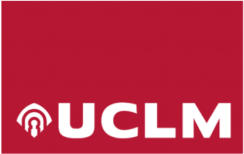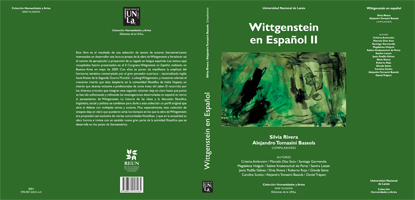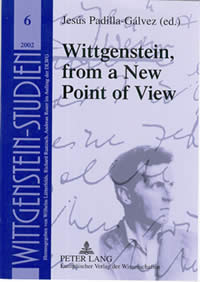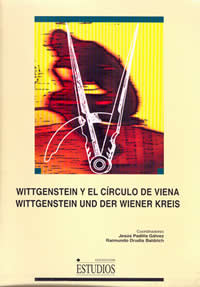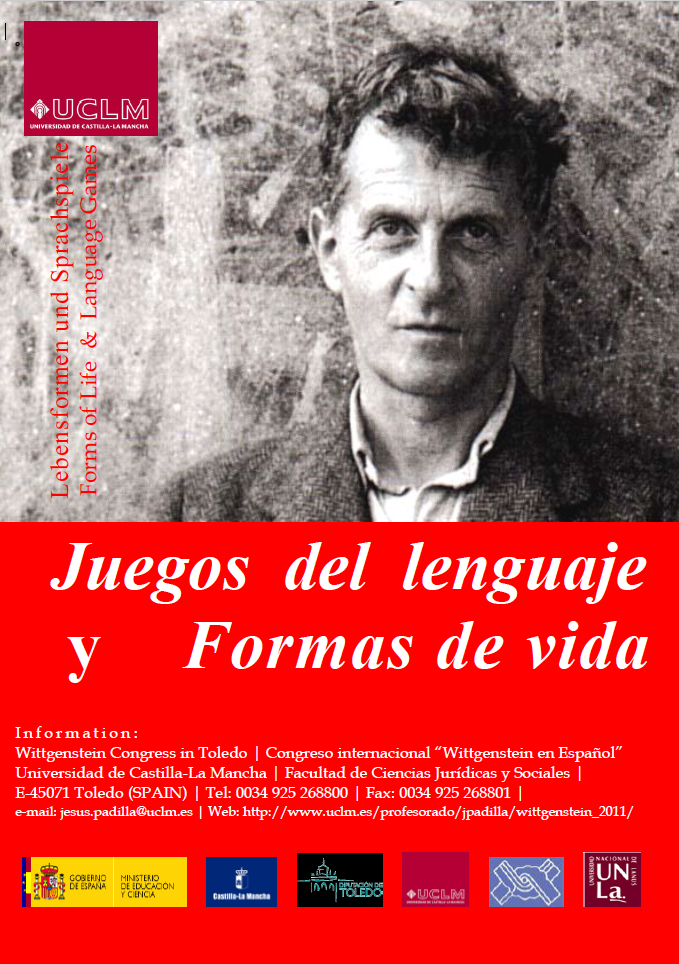
Juegos del lenguaje y Formas de vida
Language Games and Forms of Life
Sprachspiele und Lebensformen
International Wittgenstein Congress
Monday, 20 June to Friday, Thursday 22 June 2011
University of Castilla-La Mancha
Facultad de Ciencias Jurídicas y Sociales
San Pedro Mártir, s/n.
E-45071 Toledo
( SPAIN )
Invited Speakers
Invited Speakers include:
- Prof. Dr. P.M.S. Hacker
University Oxford
Emeritus Research Fellow
St Johns College
Oxford OX1 3JP
(ENGLAND)
Web: http://info.sjc.ox.ac.uk/scr/hacker/hacker1.html
- Prof. Dr. Michel Le Du
Université de Strasbourg
14 rue René Descartes
67084 Strasbourg Cedex
(FRANCIA)
e-mail: ledu@unistra.fr
- Profa. Dra. Carolina Scotto
Rectora
Universidad Nacional de Córdoba (Rectora),
Argentina
E-mail: carolinascotto@gmail.com
- Prof. Dr. António Marques
New University of Lisbon
Instituto de Filosofia da Linguagem
Faculdade de Ciências Sociais e Humanas/ UNL
Edifício I&D – Salas 4.01, 4.02 & 4.12
Av. de Berna, 26
1069-061 Lisboa
PORTUGAL
Web: http://www.ifl.pt/main/Pessoas/NunoVenturinha/tabid/101/Default.aspx
E-mail: nventurinha.ifl@fcsh.unl.pt
Tel.: +351 217908300 Ext. 1527
- Prof. Dr. Javier Sádaba
Universidad Autónoma de Madrid
Departamento de Filosofía
Campus Cantoblanco
Carretera de Colmenar km. 16
28049 Madrid
Web: http://www.ffil.uam.es/filosofia/profesorado/sadaba.html
- Prof. Dr. Vicente Sanfélix Vidarte
Departamento de Metafísica y Teoría del Conocimiento
Universidad de València.
Av. Blasco Ibáñez, 30
46010-Valencia
e-mail: vicente.sanfelix@uv.es
- Prof. Dr. Julián Trujillo
Universidad del Valle
Ciudad Universitaria Meléndez
Calle 13 No 100-00
Departamento de Filosofía
Edificio 386, espacio 3005.
Ciudad Universitaria- Meléndez
PBX +57 2 3212100 A.A. 25360
Cali – Colombia
E-mail: juliantrujilloa@yahoo.com
- Prof. Dr. Pablo Quintanilla
Pontifica Universidad Católica del Perú
Lima
(PERÚ)
E-mail: pquinta@pucp.edu.pe
- Profa. Dra. Glenda Satne
Universidad de Buenos Aires (UBA)
Facultad de Filosofía y Letras
Departamento de Filosofía
Buenos Aires
(ARGENTINA)
E-mail: glendasatne@hotmail.com
- Prof. Dr. Norberto Abreu e Silva Neto
Universidad de Brasil
Editora Universidade de Brasília
SCS Quadra 2, Bloco C, nº. 78
Edifício OK, 2º. andar
70302-907 Brasília, DF
E-mail: norberto.abreu@uol.com.br
- Prof. Dr. Adrian Curssins
Universidad Nacional de Colombia
Colombia
E-mail: adriancussins@mac.com
- Prof. Dr. Carlos Enrique Caorsi
Universidad Nacional de Uruguay
Uruguay
E-mail: cecaorsi@montevideo.com.uy
- Prof. Dr. Nuno Venturinha
Universidade Nova de Lisboa
Instituto de Filosofia da Linguagem
Faculdade de Ciências Sociais e Humanas/ UNL
Edifício I&D – Salas 4.01, 4.02 & 4.12
Av. de Berna, 26
1069-061 Lisboa
PORTUGAL
Web: http://www.ifl.pt/main/Pessoas/NunoVenturinha/tabid/101/Default.aspx
E-mail: nventurinha.ifl@fcsh.unl.pt
Tel.: +351 217908300 Ext. 1527
- Profa. Dra. Magdalena Holguín
Universidad Nacional de Colombia
Colombia
E-mail: mholguin@cable.net.co
- Dr. Witold Jacorzynski
Centro de Investigaciones y Estudios Superiores en Antropología Social
(CIESAS),
Jalapa,
México
E-mail: vitusito@yahoo.com.br
Organizing Committee and Symposium Secretary
Organizing Committee:
- Prof. Dr. Noberto Abreu e Silva Neto (UBr)
- Prof. Dr. Vicente Sanfélix Vidarte (UV)
- Prof. Dr. Jesús Padilla Gálvez (UCLM)
- Prof. Dr. Nuno Venturinha (Universidade Nova de Lisboa)
Symposium Secretary:
- Mag. Margit Gaffal (UCLM)
Scientific Committee
Scientific Committee:
- Prof. Dr. Jesús Padilla Gálvez (UCLM)
- Profa. Dra. Silvia Rivera (Universidad de Buenos Aires)
- Profa. Dra. Carolina Scotto (Universidad Nacional de Córdoba)
- Prof. Dr. Nuno Venturinha (Universidade Nova de Lisboa)
- Profa. Dra. Mag. Margit Gaffal (UCLM)
- Prof. Dr. Pablo Quintanilla (Pontifica Universidad Católica del Perú)
- Prof. Dr. Guillermo Hurtado (UNAM)
Justification
Sin lugar a dudas, los debates suscitados por L. Wittgenstein han estimulado el pensamiento contemporáneo. Nos ofrece recursos para innovar gran parte de las cuestiones analizadas por la filosofía tradicional. Muchos de los planteamientos clásicos, después de un análisis pormenorizado, se han transformado en cuestiones de debate en la que han participado activamente filósofos intelectualmente respetables. Frente a las dudas suscitadas por este pensador, la terminología ha sido revisada y discutida. A menudo, el lector tiene la sensación que después de una lectura atenta de sus argumentos, estamos principiando un nuevo campo de reflexión. Algo semejante ocurre cuando reflexiona acerca de dos términos nucleares del pensamiento contemporánero, a saber: «juego del lenguaje» y «formas de vida».
En un momento de lucidez, L. Wittgenstein anota:
Das Wort »Sprachspiel« soll hier hervorheben, daß das Sprechen der Sprache ein Teil ist einer Tätigkeit, oder einer Lebensform.» (Wittgenstein, PU, 23)
«El término «juego del lenguaje» ha de poner de relieve aquí que hablar una lengua forma parte de una actividad o de una forma de vida.» (Wittgenstein, IF, 23)
La cita pone de manifiesto que existe una correlación entre el término «juego de lenguaje» y el hecho genuino de que el modo de hablar una lengua es, por un lado, una actividad humana y, sin embargo, también, pone de manifiesto una forma de vida. Ciertamente, podríamos preguntar, qué relevancia desempeña el juego de lenguaje en el condicionamiento de nuestra forma de vida. ¿Existe una relación recíproca entre los «juegos de lenguaje» y las «formas de vida»? ¿Hasta que punto, nuestra forma de vida y la forma de vida de otros individuos viene reflejada en los juegos lingüísticos que usan? ¿Cómo codifica el juego de lenguaje nuestras formas de vida y la de nuestros semejantes? Dar respuestas a cuestiones tan intrigantes nos induce a repasar todo nuestro edificio terminológico
En su corta vida, ambos términos han generado, como mínimo, tres controversias y va en camino de suscitar una nueva disputa en los próximos años. El concepto alemán «Lebensform(en)», que traducido al castellano se denomina «formas de vida», se ha convertido en un problema central de la filosofía. De facto, L. Wittgenstein lo menciona algo más de una veintena de veces en su obra. Sin embargo, la convulsión que ha generado y el modo como es usado ha generado una gran discusión en el ámbito filosófico. En su origen, el concepto «formas de vida» fue analizado desde opciones culturales, antropológicas, psicológicas y lingüísticas. Su cambio de significado permitió múltiples interpretaciones. Por un lado, la interpretación monista ha entrado en conflicto con una visión pluralista del mundo. También los que conciben los modos de vida como modos de coexistencia que sobreviven paralelas han discutido con aquellas posiciones radicales que entienden que la pluralidad de formas de vida desembocan inevitablemente en un conflicto.
Estrechamente vinculado a las formas de vida se discute el término «juegos del lenguaje» (Sprachspiel). Monismo y pluralismo se confunden con las posiciones pragmáticas con el fin de aclarar este ámbito de investigación.
Este congreso pretende analizar de modo sistemático los argumentos desarrollados acerca de este complejo con el fin de reconducir el debate y ubicarlo en el ámbito pertinente.
The topic of this Congress revolves around the two key topics of «language games» on the one hand and «forms of life» on the other hand. The aim is to analyse systematically the interrelation between these two concepts. In order to understand a language it is necesseary to comprehend how it works. As such, language may be compared to a game that has rules and exceptions. Within a language there are as many languages as language games. If we want to understand a word we have to know its functions. From its functioning we can then delimit its meaning. This approach implies that each language game is equivalent to a form of life. At the same time, a speaker of a certain language can master various language games in this language and at the same time can easily «move» within different forms of life.
The meaning of form of life is fundamentally different from what is called life style. Whereas the latter is based on external appearance the former refers to the domain of linguistic expressiveness. A revision of the research literature shows that the two notions of «language game» and «form of life» have never been investigated as related phenomena. Researchers have described the elements on which a theory of language games is based. However, the function of language can only be understood by making a direct connection to the concerns of our lives. Consequently, language is studied as an activity that is governed by rules. In this context, the concept of the rule is profoundly discussed.
The aim of the Congress is to analyse the mutual relationship between «language games» and «forms of life». This aim involves first, an anlysis and description of the rules (philosophical grammar), and second a synchronic and diachronic view of the topic. In other words, we shall examine the notions in its historic context and as well investigate them systematically. We shall discuss such topics as the role that representation plays in theories, the structure of forms of life, the distinction between the anthropologic and ethnological approach, the role of norms and convictions, psychological aspects in the field of ontology and, finally the role that different language games play in the organisation of the forms of life that exist in our society. It is intended to publish the papers of the Congress in Toledo in a book that will contain contributions in Spanish and English language in order to present the research results to the international scientific community.
Deadlines
- 30 January 2011: Deadline for submitted papers.
- 1 March 2011: Information concerning acceptance / non-acceptance of the submitted papers.
- 1 April 2011: Deadline for registration and payment for non-speakers.
- 12 July 2011: Beginning of the Symposium.
- Please submit papers for publication until 15 October 2011
- 30 de enero de 2011: Fecha límite para presentar los trabajos.
- 1 de marzo de 2011: Información sobre la aceptación o no aceptación de los trabajos presentados.
- 1 de abril 2011: Fecha límite de inscripción y el pago de la inscripción.
- 20 de junio de 2011: Inicio del Simposio.
- El 20 de agosto 2011 es la fecha límite para enviar los trabajos para su publicación.
Instructions for Authors of Submitted Papers
Papers should be submitted in Word format and sent as e-mail attachment to:
Jesus.Padilla@uclm.es. They may alternatively be sent by mail on disk – including a hard-copy printout – to:
Los trabajos deben enviarse en formato Word como archivo adjunto al siguiente e-mail o bien pueden ser enviadas por correo en el disco e incluyendo una copia impresa en papel a: jesus.padilla@uclm.es
Prof. Dr. Jesús Padilla Gálvez
Universidad de Castilla-La Mancha
Facultad de Ciencias Jurídicas y Sociales
Cobertizo San Pedro Mártir, s/n.
E-45071 Toledo
(Spain)
Languages & Copyright: Papers must be written in Spanish, German or English. They must not have been accepted or submitted for publication elsewhere. Copyright will remain with the author.
Idiomas y Derechos de Autor: Los trabajos deberán estar escritos en español, (para la versión inglesa, en inglés). No debe haber sido aceptado o enviado para su publicación a otra editorial. El copyright será del autor.
Length: Papers should not exceed an overall length of 3000 words, including all notes, references, and the abstract.
Longitud: Las ponencias no deben exceder una longitud total de 3000 palabras, incluidas todas las notas, referencias.
Layout: Authors should use a simple uniform layout. They should avoid mixing fonts, and they should use italics (not bold ) for words or phrases requiring emphasis, for titles of published books and journals, and for foreign words.
Diseño: Los autores deben utilizar un diseño sencillo e uniforme. Deben evitar las fuentes de mezcla, y deberán usar cursiva (no negrita) para las palabras o frases que requieren atención, para los títulos de libros publicados y revistas, y para las palabras extranjeras.
Headings: A maximum of one level of section headings should be used, with the following format: 2. Wittgenstein’s Theory of Colour.
Títulos: Para los títulos y subtítulos se usará el siguiente formato: 2. Teoría del Color de Wittgenstein.
References: A bibliographical list of all cited references should be placed at the end of the paper under the heading «Bibliografía», «Literature (References)» or «Literatur». It should begin with the author’s last name, first name and followed by the year of publication, exactly according to the following style:
Referencias: Al final del texto aparecerá una lista completa de la bibliografía usada. Se debe comenzar con el apellido del autor, nombre y seguido del año de publicación, de acuerdo con el siguiente estilo:
Wittgenstein, L., 1980: Tractatus logico-philosophicus. Tagebücher. Philosophische Untersuchungen. In: Schriften 1. Suhrkamp, Frankfurt a. M.
Frege, G., 1892: Über Sinn und Bedeutung, Zeitschrift für Philosophie und philosophische Kritik , 100, 25-50.
Sluga, H., Stern, D. G. (eds.), 1996: The Cambridge Companion to Wittgenstein. Cambridge U.P., Cambridge .
Padilla Gálvez, J., 2004: Disgressionen über das sich entwerfende Ich. In: Thomas Mohrs, Adreas Roser und Djavid Salehi (eds.), Die Wiederkehr des Idealismus? Festschrift für Wilhelm Lütterfelds zum 60. Geburtstag . Peter Lang, Frankfurt a.M.; Berlin; Bern; Bruxelles; New York; Oxford; Wien, 137-153.
All citations should then appear in the text (rather than in footnotes) in the form:
Todas las citas en el texto aparecerán del siguiente modo (en lugar de en las notas): (Wittgenstein 1980, 178), (Frege 1892, 25), (Sluga 1996, 24), (Padilla Gálvez 2004, 138)
Further suggestions: Avoid footnotes as far as possible. Avoid automatically generated lists. Authors will receive one proof. There is possibility for making corrections after submission. Contributions with serious formal or technical faults will be refused.
Otras sugerencias: Evite las notas en la medida de lo posible. Evite genera automáticamente listas. Los autores recibirán una prueba. No hay posibilidad de hacer correcciones después de la presentación del trabajo.
Registration
If you wish to register, please download the registration form, make a printout, fill it in and send it to:
Si desea registrarse, por favor descargue el formulario de inscripción, realice una impresión, rellénelo y envíelo a:
Prof. Dr. Jesús Padilla Gálvez
Universidad de Castilla-La Mancha
Facultad de Ciencias Jurídicas y Sociales
Cobertizo San Pedro Mártir, s/n.
E-45071 – Toledo (Spain)
Phone: 00 34 925 268800 (Extensión: 5126)
Fax: 00 34 925 268832
E-mail: jesus.padilla@uclm.es
Download the Registration form (.doc) | Download the Registration form (.pdf)
Programme
| Timetable | Sunday 19-6-2011 |
Monday 20-6-2011 |
Tuesday 21-6-2011 |
Wednesday 22-6-2011 |
Thursday 23-6-2011 |
|---|---|---|---|---|---|
| 9:00-10:00 | Reception of Participants | 9:30 Opening Welcome |
Nino Venturinha (Universidad Nueva de Lisboa) Wittgenstein’s Debt to Sraffa. |
Adrian Curssins (Universidad Nacional de Colombia) Juegos de Lenguaje, Formas de Vida y Contenido Mediacional |
Departure of Participants |
| 10:00-11:00 | P.M.S. Hacker (University Oxford) «The speaking of language is part of an activity, or of a form of life» – Language games and integrational linguistics. | Vicente Sanfélix (Universidad de Valencia) Wittgenstein, ¿escéptico fisiognómico? |
Witold Jacorzynski (CIESAS), «He llegado a la roca dura y mi pala se retuerce»: comentarios sobre la indeterminación de la forma de vida. | ||
| 11:00-11:30 | Coffee break | ||||
| 11:30-12:30 | António Marques (Universidad Nueva de Lisboa), Wittgenstein on Experience and Memory. | Carolina Scotto, (Universidad Nacional de Córdoba), El «aspecto» de las palabras: acerca del significado y los juegos de lenguaje secundarios. | Julian Trujillo (Universidad del Valle, Colombia), Argumentación Jurídica y Juegos de Lenguaje | ||
| 12:30-13:30 | Michel Le Du (Université de Strasbourg ) Wittgenstein & Hayek on Rules and Lines of conduct. | Javier Sádaba (Universidad Autónoma de Madrid), Racionalidad e irracionalidad en los juegos de lenguaje wittgensteinianos. | Jesús Padilla Gálvez (Universidad de Castilla-La Mancha), Forms of life and Language games. | ||
| 13:30-15:00 | Lunch | ||||
| 15:00-16:00 | Margit Gaffal (Universidad de Castilla-La Mancha), Forms of Life from a psychological Point of View. | Glenda Satne (Universidad de Buenos Aires), Formas de vida humanas y la pregunta por el juego de todos los juegos. | Close of conference | ||
| 16:00-17:00 | Norberto Abreu e Silva Neto (Universidad de Brasilia) Los usos del término «Lebensform», los significados de «vida» e internet. |
Cecilia Beristain, (Universität München) Language games and the Latticed Discourses of a Self. | |||
| 17:00-17:30 | Coffee break | ||||
| 17:30-18:30 | Carlos Enrique Caorsi (Universidad Nacional de Uruguay), Juegos de lenguaje y lenguaje privado Wittgenstein-Kripke-Davidson. | Pablo Quintanilla (Pontifica Universidad Católica del Perú), ¿Cómo se constituye una forma de vida? | |||
| 18:30-19:30 | Aziz El Haddadi (University of Rabat), Language and Philosophy as a Lifestyle. | Jakub Mácha, (Masaryk University), Kunst als Institution und Ausdruck. | |||
| 21:30 | Welcome Dinner | Dinner | |||
Publication «Wittgenstein en Español»
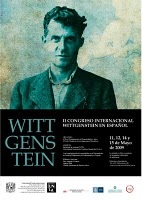
I Congreso Internacional «Wittgenstein en español»
Del 22 al 26 de enero 2007. UNAM. Instituto de Filosofía. México D.F. (MÉXICO)
Cartel: http://www.filosoficas.unam.mx/imag/cartel.pdf
Publicación: Wittgenstein en Español. Buenos Aires: Ediciones de la Universidad Nacional de Lanús, Serie Filosofía, 2009.
Publication
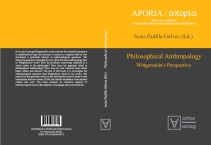
Jesús Padilla Gálvez (Ed.), Philosophical anthropology Frankfurt a. M.: Ontos Verlag, 2010, (ISBN 13: 978-3-86838-0687-5).
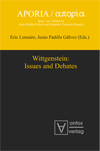
Eric Lemaire, Jesús Padilla Gálvez (Eds.), Wittgenstein: Issues and Debates. Frankfurt a. M.: Ontos Verlag, 2010, (ISBN 13: 978-3-86838-083-5).
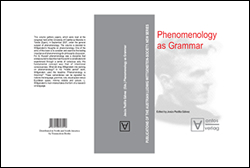
Phenomenology as Grammar . Edited by Jesús Padilla Gálvez. Frankfurt a. M.: Ontos Verlag, 2008. (ISBN 13: 978-3-938793-91-6)
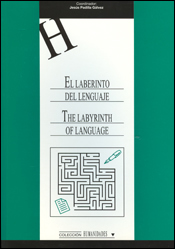
El Laberinto del Lenguaje – The Labyrinth of Language. Jesús Padilla Gálvez. Cuenca: Ediciones de la Universidad de Castilla-La Mancha, 2007 (ISBN: 978-84-8427-510-7).
The International Ludwig Wittgenstein Society e.V., has published the Wittgenstien-Studien (http://www.ilwg.eu/). Most papers are in English and German.
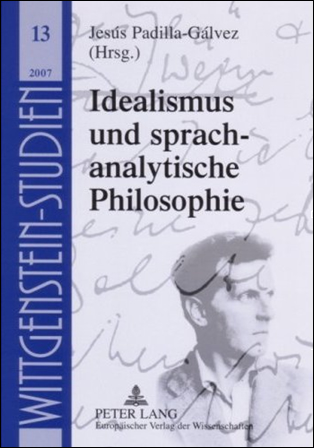
Jesús Padilla Gálvez (Ed.), Idealismus und sprachanalytische Philosophie . Peter Lang, Frankfurt a.M ., 2007. 199 págs. ( ISBN: 36 315 607 53).
Sponsors of the International Wittgenstein Symposium
The following institutions support the International Wittgenstein Symposium in Toledo:
- Facultad de Ciencias Jurídicas y Sociales, Toledo (Spain)
- Universidad de Castilla-La Mancha, Toledo (Spain)
- Junta de Comunidades de Castilla-La Mancha, Toledo (Spain)
- Ministerio de Educación y Ciencia, Madrid (Spain)
- Obra Cultural Caja Castilla-La Mancha
- Diputación Provincial de Toledo
Travel and Accommodation
Map of Toledo (Spain)
Travel
- How to get to Toledo by train:
(1) When you arrive in Madrid Airport Barajas, take a metro or taxi to Madrid Atocha (Madrid South railway station). (http://www.renfe.es)
(2) From Madrid Atocha take a train to Toledo, which is situated about 75 kilometres (47 miles) south of Madrid. Trains to Toledo depart almost every hour.
(3) Once you have arrived at the railway station in Toledo, take a taxi to the Faculty of Law and Social Sciences (in San Pedro Mártir), where the conference office is located. The conference office will be open on Thursdy, 15 September from 10.00 am. There you will receive a conference folder.
- How to get to Toledo by bus:
(1) Go to the central bus station in Madrid and take the bus to Toledo There are buses every half an hour, some of them going directly to Toledo. Please contact the following e-mail address for more information(estacionbus@ayto-toledo.org).
Accommodation
- Oficina de Turismo Toledo
Plaza del Ayuntamiento, nº 1
45002 Toledo, Toledo
Email: turitoledo@line-pro.es
Tel: + 34 925 254 030
Fax: + 34 925 254 030 - Oficina de Turismo Toledo
Puerta de Bisagra, s/n
45003 Toledo, Toledo
Tel: + 34 925 220 843
Fax: + 34 925 252 648
Eating and Drinking
Although vegetarianism is less popular in Spain than in the UK or in the USA, most of the restaurants offer salad. If the menu has no special vegetarian section, consult the starters section. The Primer plato (starters) section should contain salads; the Segundo plato (main dish) usually contains fish or meat and the postre (dessert) usually include ice cream, fruit or cheese.
In Castilla (Spain), the most popular drinks are wine and beer. There is also an ample choice of non-alcoholic beverages.
It is customary to give a tip of 5 to 10 percent of the bill, provided that you are satisfied with service, food and drink.
Money
In a city like Toledo, most people prefer cash to credit cards. So please be prepared to pay your bills in cash, using Euro. There are many banks in Toledo, where you can change money (from Monday to Friday), if necessary. Additionally, all of these banks operate Cash points that accept most of the internationally recognized credit cards.
Weather
September is normally hot and dry, but there may be rain showers, and late evenings and early mornings are chilly.
Links
- Renfe (Online timetable of the Spanish Railways http://www.renfe.es)
- Madrid-Barajas (Madrid International Airport)
- Toledo (turitoledo@line-pro.es)
- Universidad de Castilla-La Mancha (http://www.uclm.es)
The Faculty of Law and Social Sciences
Host City
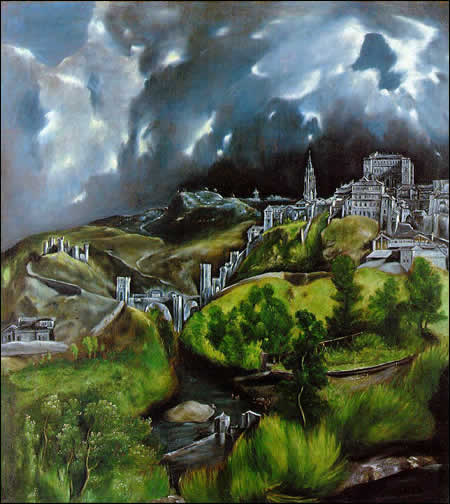
Toledo is a city and municipality located in central Spain, 70 km south of Madrid. It was declared a World Heritage Site by UNESCO in 1986 for its extensive cultural and monumental heritage as one of the former capitals of the Spanish Empire and place of coexistence of Christian, Jewish and Moorish cultures. Roman armies invaded Hispania in 218 BC and used it as a training ground for officers and as a proving ground for tactics during campaigns against the Carthaginians, the Iberians, the Lusitanians, the Gallaecians and other Celts. It was not until 19 BC that the Roman emperor Augustus (r. 27 BC-AD 14) was able to complete the conquest. Until then, much of Hispania remained autonomous. In 484 the Visigoths established Toledo as the capital of their monarchy. The Visigoths were one of two main branches of the Goths, an East Germanic tribe, the Ostrogoths being the other. The kingdom survived until 711, when King Roderic was killed while opposing an invasion from the south by the Umayyad Muslims in the Battle of Guadalete on July 19. This marked the beginning of the Muslim conquest of Hispania in which most of peninsula came under Islamic rule by 718. On May 25, 1085 Alfonso VI of Castile took Toledo and established direct personal control over the Moorish city from which he had been exacting tribute, and ending the mediaeval Taifa’s Kingdom of Toledo . This was the first concrete step taken by the combined kingdom of Leon-Castile in the Reconquista by Christian forces. In the 13th century, Toledo was a major cultural center under the guidance of Alfonso X, called » El Sabio » («the Wise») for his love of learning. The program of translations, begun under Archbishop Raymond of Toledo , continued to bring vast stores of knowledge to Europe by rendering great academic and philosophical works in Arabic into Latin. When Philip II moved the royal court from Toledo to Madrid in 1561, the old city went into a slow decline from which it never recovered.
